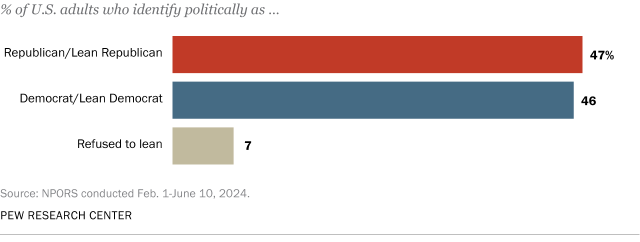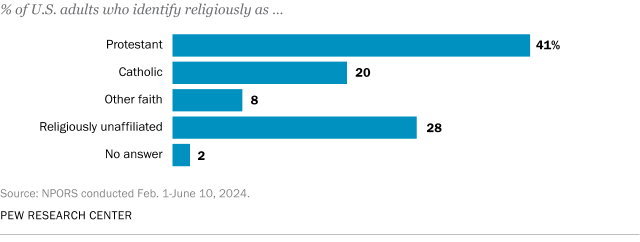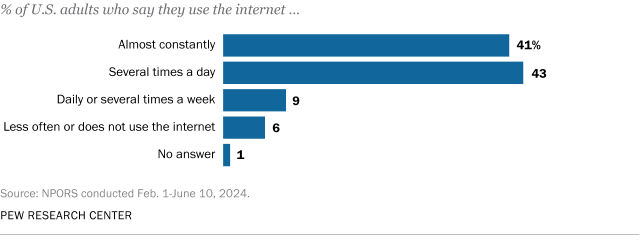NPORS is an annual survey of U.S. adults conducted by Pew Research Center. Respondents may answer by paper, online or over the phone. They are selected using address-based sampling from the U.S. Postal Service’s Computerized Delivery Sequence File. Respondents are not required to join a survey panel. Pew Research Center uses NPORS to produce benchmark estimates for several topics, such as Americans’ political and religious affiliations. Read a detailed description of how the survey is conducted, as well as more information about how the Center uses NPORS.
Comparing NPORS to other polling data
NPORS estimates, which are based on paper, online and telephone survey responses, may differ somewhat from historical Pew Research Center polling data. There are several reasons why differences may arise. The Center has released analyses of how survey mode can influence estimates of political opinions and religious attitudes and behaviors.

Political party affiliation
The latest NPORS estimates are shown below. The Center also provides in-depth analysis of trends in political party affiliation.


Religious affiliation
The latest NPORS estimates are shown below. The Center also provides in-depth analysis of trends in religious affiliation as well as analysis of the size and attitudes of many religious faiths in the U.S.


Frequency of internet use
The latest NPORS estimates are shown below. The Center also provides trend data on social media, mobile phone use and internet/broadband.

NPORS Methodology
2024 NPORS
Questionnaire (online version)
2023 NPORS
Questionnaire (online version)
Methodology report
Download the dataset
2022 NPORS
Questionnaire (online version)
2021 NPORS
Questionnaire (online version)
2020 NPORS